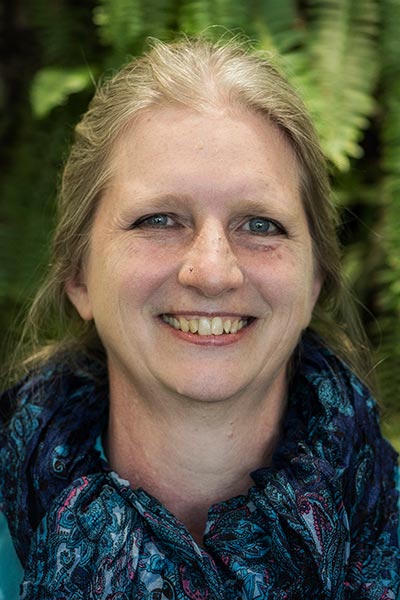Schedule filled with sessions on new approaches to complex data analysis
New technology is redefining the scope, speed, and precision of cancer research. Sessions throughout the American Association for Cancer Research Annual Meeting 2024 will help attendees gain a deeper understanding of these tools, as well as best practices, possible complications, and other considerations.

“There are so many breakthroughs happening in this area,” said Annual Meeting Program Committee Chair Christina Curtis, PhD, MSc, the RZ Cao Professor of Medicine, Genetics, and Biomedical Data Science and Director of Artificial Intelligence and Cancer Genomics and of Breast Cancer Translational Research at Stanford University.
“We’ve been all coming to grips with the kind of data, just scale of data—really its enormity—and how do we integrate different data types, for many years.”
Artificial intelligence (AI) and its potential uses in cancer research will be the focus of the plenary session AI at the Interface: Accelerating Evidence Generation, Advancing Disparities Research, and Improving Trial Design. From 8 – 10 a.m. PT on Wednesday, April 10, in Ballroom 20 on the upper level of the convention center, presenters will explore how AI may revolutionize medical imaging, health disparities data, drug discovery and development, and much more.
Additional sessions on computational models and data analysis can be found in the Annual Meeting’s Data Science track. This group of sessions expands on the topic through a variety of session types, including:
- Plenary sessions on profiling tumor ecosystems in native tissue context and the evolution of the genome, microenvironment, and host through metastasis;
- Advances in Technologies sessions on harnessing machine learning for spatial biology insights, frontiers in computational oncology, and the impact of computational pathology and generative AI on personalized medicine;
- a forum on opportunities and challenges in leveraging real-world data to accelerate evidence generation;
- a town hall meeting with the AACR Cancer Evolution Working Group;
- a methods workshop on single-cell data analysis for bench-based scientists; and
- an educational session on data science in the biomarker-based early detection of cancer.
Other notable sessions on emerging computational tools are highlighted below, and more can be found in the Annual Meeting app and online program planner. Educational sessions and methods workshops require an Educational Program Pass, which can be added to new or existing Annual Meeting registrations. Recordings of all sessions will be available on-demand via the Virtual Meeting Platform through July 10.

MW09: Emerging Data Analysis Methods for Cancer Research
Saturday, April 6, 12:30 – 2 p.m. PT
Ballroom 20 CD, Upper Level, Convention Center*
Workshop Chair: Jeremy Goecks, PhD, OHSU Knight Cancer Institute
This workshop will provide an overview of single-cell spatial omics analysis methods, together with artificial intelligence approaches. Speakers will also review analysis methods for tumor phosphoproteomics and provide an overview of the ITCR Training Network, a collaborative effort of researchers around the United States to support cancer informatics and data science training through resources, technology, and events.
(*requires Educational Program Pass)

TM06: Artificial Intelligence for Research Enhancement in Population Sciences: A Population Sciences Working Group Town Hall Meeting
Sunday, April 7, 6 – 8 p.m. PT
Sapphire Ballroom, Hilton Bayfront Hotel
PSWG Chair: Lorelei A. Mucci, ScD, MPH, Harvard T.H. Chan School of Public Health
PSWG Chair: Paul A. Scheet, PhD, UT MD Anderson Cancer Center
This special evening session will be hosted by the chairs of the AACR Population Sciences Working Group (PSWG) and is open to all Annual Meeting attendees. The 2024 PSWG Town Hall will feature a panel discussion on artificial intelligence in research from experts in the population sciences community. The Town Hall also includes a Networking Reception at the beginning and conclusion of the session.

NIH12: NCI Artificial Intelligence (AI) Programs and Resources for Advancing Cancer Research
Wednesday, April 10, 10:15 – 11:15 a.m. PT
Room 2, Upper Level, Convention Center
Session Moderator: Jennifer Couch, PhD, National Cancer Institute
In this session, attendees will learn about NCI funding opportunities, resources, and community activities that support the appropriate development and application of AI in cancer research. Examples of AI-related advances in cancer research supported through these programs and funding opportunities will be presented, demonstrating impact across the cancer research spectrum.
More from the AACR Annual Meeting 2025
View a photo gallery of scenes from Chicago, continue the conversation on social media using the hashtag #AACR25, and read more coverage in AACR Annual Meeting News.

